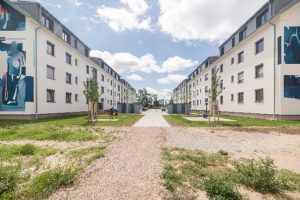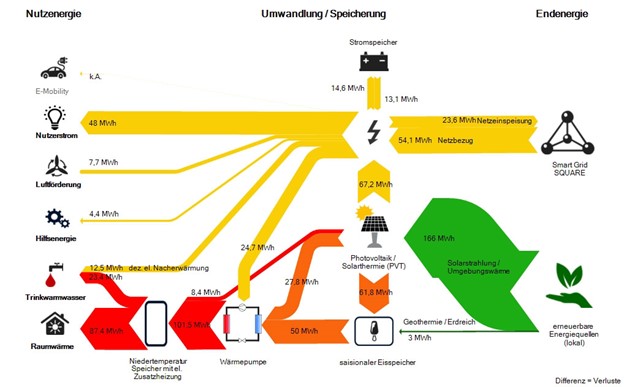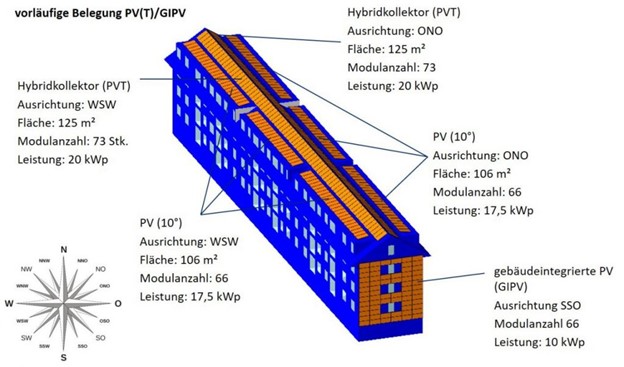
© GBG Mannheim
Since 2009, the city of Mannheim has been pursuing the goal of reducing local CO2 emissions by 40% by 2020 compared to 1990 levels. Mannheim is working towards this goal through various projects, innovative concepts, and cooperation. The SQUARE (smart quarter and urban area reducing emissions) project, which is being implemented on the site of the former Benjamin Franklin barracks in Mannheim, is one such project that is making a significant contribution. Two former residential buildings were refurbished, each with around 2,800 square meters and 24 apartments. This is a great example of a retrofit, which can prove more difficult to upgrade energy-wise than starting from scratch with a new, specially-designed building.

© Photographer Timo Volz
Different energy standards and technology concepts were implemented in the two buildings. The project is intended to demonstrate integrated solutions for CO2 reduction at the neighborhood level, and also to serve as a demonstration project for the energy-optimized development of existing residential neighborhoods. The main objective of the SQUARE project was to minimize CO2 emissions in SQUARE next, one of the two renovated residential buildings, and to compare that building’s operating consumption with the consumption of a standard renovation, SQUARE now, by means of intelligent monitoring.
Facts and Data

Energy flows from Square Mannheim: PV systems on the house produce more than twice as much electricity as net-purchased from the grid. Thanks to heat pumps, one energy unit of electricity turns into 4 energy units of heat. Graphics: © Drees & Sommer

PV systems use a large portion of the building’s surface areas. Graphics: © Drees & Sommer




